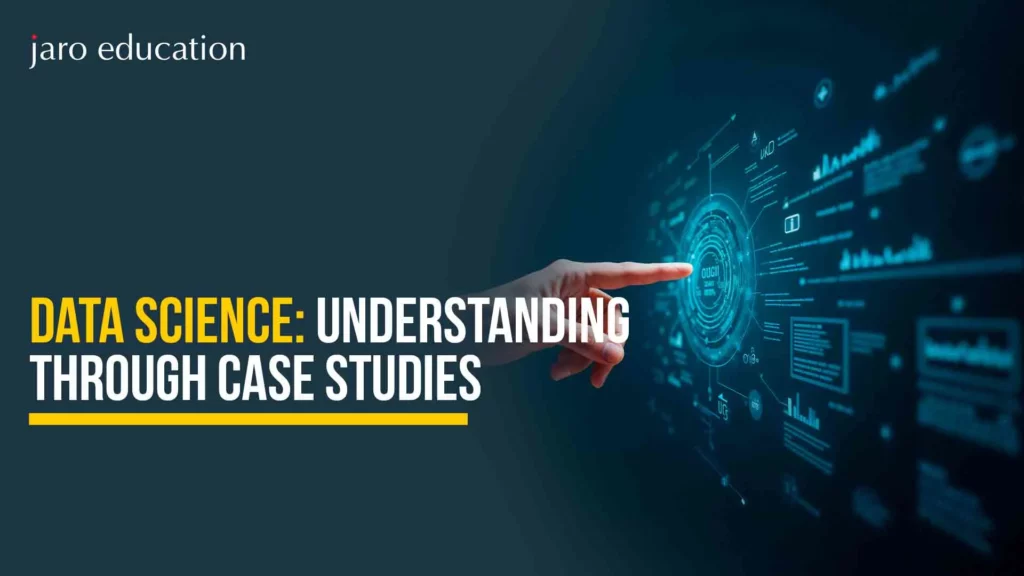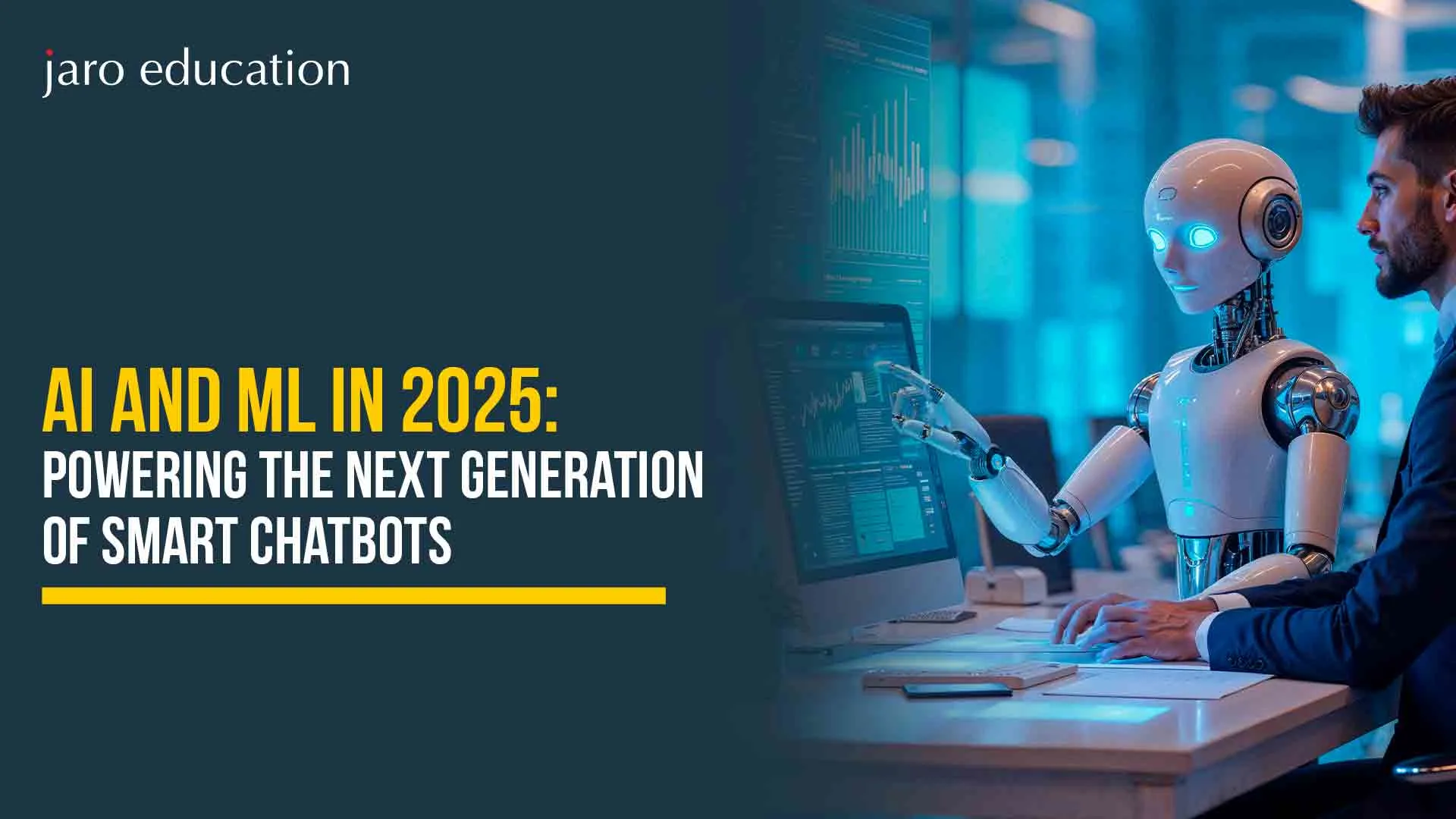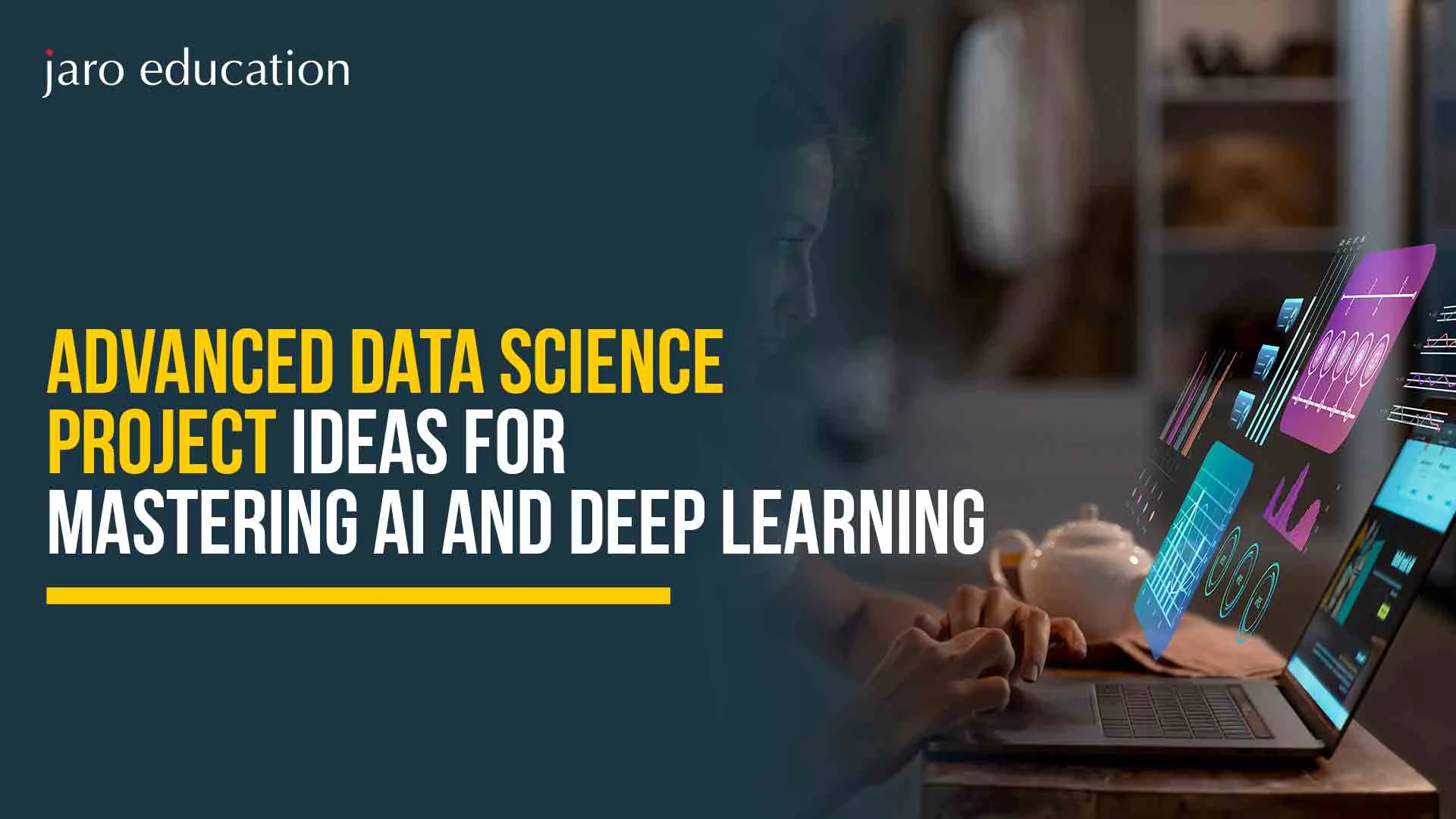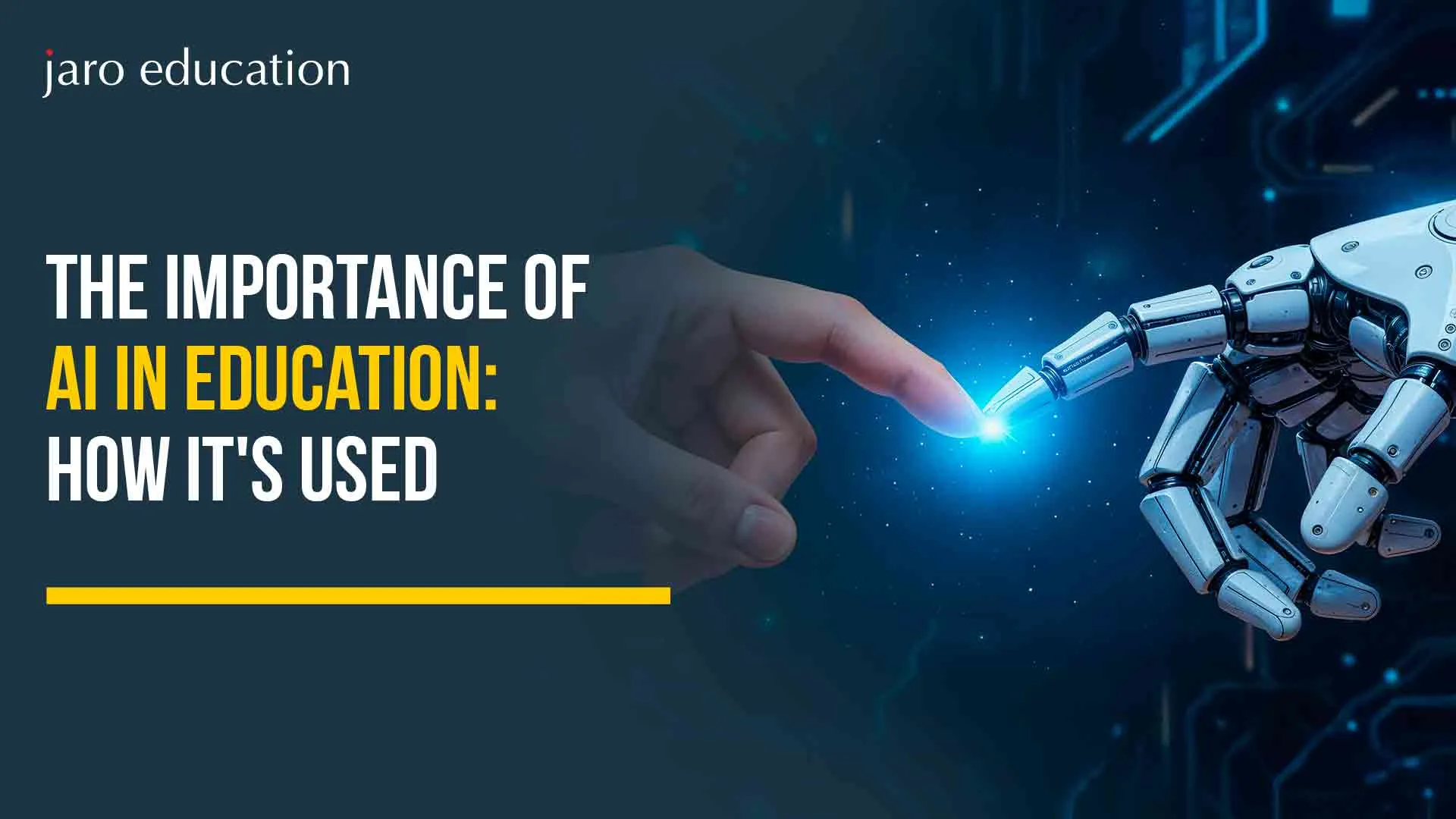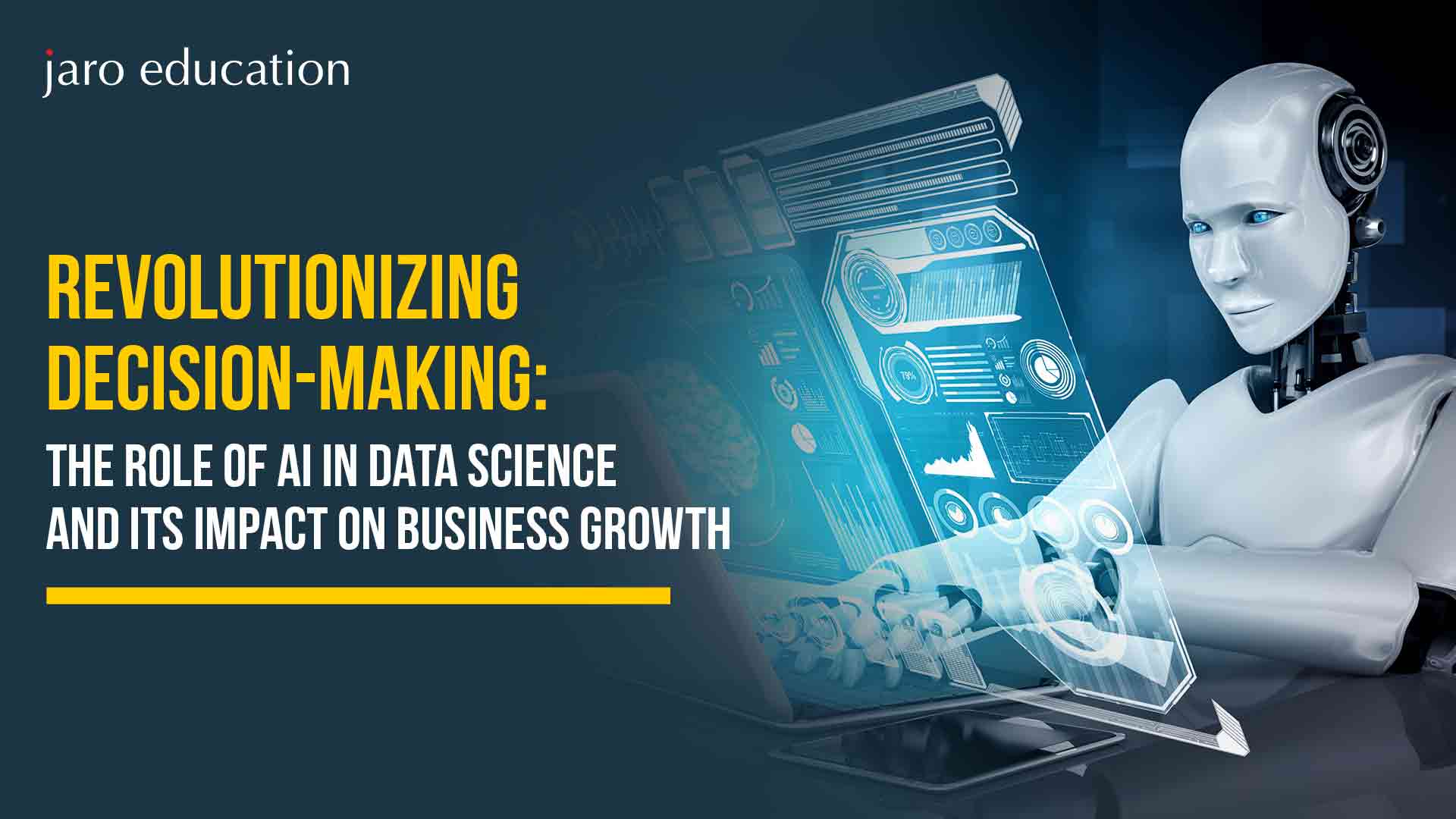Data Science: The Career Path of the Future
Table of Contents

Have you noticed how nearly every company today talks about data? Be it any small startups or global giants like Amazon, Google, and healthcare providers, most of the organizations are heavily investing in data science. Why? Simply because it is becoming the backbone of how businesses operate, innovate and even stay competitive.
That being said, as companies rush to harness this power, there’s a skyrocketing demand for skilled people who can bridge the gap between numbers and business outcomes.
So, if you’re wondering what all the conversation is about and if a data science career is the right move for you, stick around. In this blog, we are going to explore why data science in the future is not just relevant but also essential and how you can be part of this exciting journey.
What Does Data Science Include?
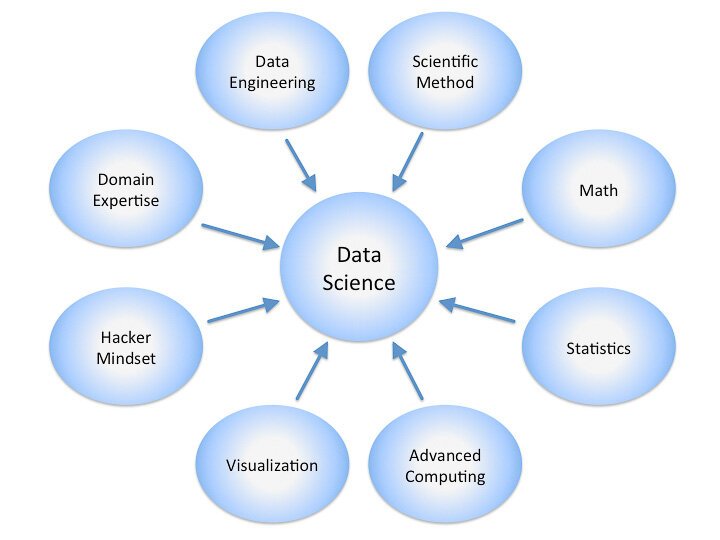
*whyofai.com
Before we get into any elaboration part, let’s quickly go over the basics of data science. If you’re considering a data science career, here’s what you should be prepared to work with:
- Data Collection & Cleaning: The primary tiny step is grunt work, which means collecting data from different sources (like CRMs, websites, sensors, social media, etc.) and cleaning it. Data scientists often spend a good chunk of their time here, making sure the data is accurate and usable.
- Exploratory Data Analysis (EDA): Now the second step, where curiosity meets logic. EDA involves going deep into data to find and discover trends, patterns, anomalies or correlations. This step is highly sensitive and crucial since it guides the direction your project should go in.
- Statistical Modeling: We all know the fact that at the heart of data science career lies statistics. From regression models to hypothesis testing, this step helps professionals quantify relationships in data and make relevant predictions. Understanding probability theory here is a big plus (this blog has more such secrets you are probably looking to find by luck).
- Machine Learning & AI: This is what gives data science its cutting-edge reputation. Predictive modeling, recommendation systems, natural language processing, image recognition, all powered by machine learning algorithms and AI analysis.
- Data Visualization & Storytelling: Seems too much? Relax, the heavy part has already ended with the above point; now it’s time to present the insights, that too in a way that makes sense to business teams and stakeholders. Tools like Tableau, Power BI, and Python libraries (e.g., Matplotlib, Seaborn) come in handy here.
- Big Data Technologies: Now, with companies swimming in massive datasets, technologies like Hadoop, Spark, and cloud platforms (AWS, GCP, Azure) have become part of the modern data science career must-have toolkit.
- Domain Knowledge: The final and significant one, whether you’re working in finance, healthcare, marketing, or sports, understanding the industry you’re analyzing is essential. This context helps you ask better questions and build smarter solutions.
The Future Scope of Data Science
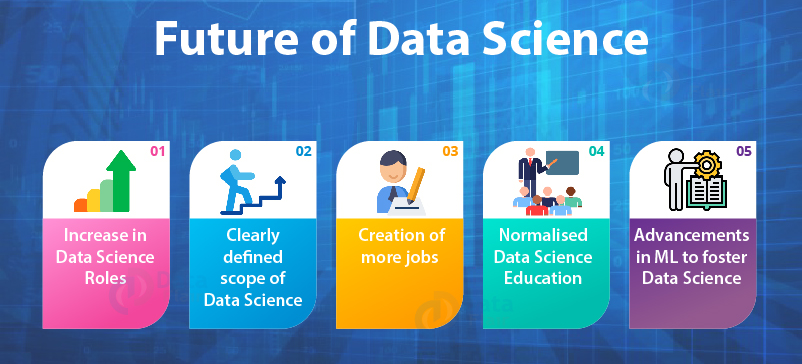
*iimtindia.net
As we know the surface of data science, now it’s time to study its potential. The field is exploding, and we’re already seeing new roles, new use cases, and new industries waking up to its power. If you’re eyeing a data science career, here’s what the road ahead looks like:
1. Industry-Wide Adoption
Data science careers aren’t confined to tech anymore. From agriculture using satellite data to optimize crop yield to fashion retailers predicting trends, most of the industries are on board.
2. AI & Automation Integration
As AI and automation evolve, data scientists will play a key role in training models, improving decision systems, and making sure machines learn responsibly.
3. Hyper-Personalization in Business
Ever thought about how Netflix recommendations or Spotify playlists work this tailored? Well, future businesses will expect such ultra-personalized experiences. That means more data, more algorithms, and more opportunities for skilled professionals.
4. Healthcare & Genomics Revolution
Imagine predicting disease risks before symptoms appear. The data science in healthcare is heading toward precision medicine, genome analysis, and AI-based diagnostics. Surprising, isn’t it?
5. Data Privacy & Ethics Careers
With great power comes great responsibility. There’s growing demand for data science career roles focused on ethical data use, algorithmic transparency, and regulatory compliance (like GDPR).
6. Smarter Cities & IoT
Further, data scientists will help design cities that can manage traffic, pollution, energy use, and emergency services, all in real-time using sensor data.
7. Startups & Entrepreneurial Ventures
As data tools become more accessible, a data science career isn’t just a job anymore. It’s a business opportunity. Professionals with niche knowledge can launch data-driven products, analytics consultancies, or even AI-based startups.
How to Build a Career in Data Science?
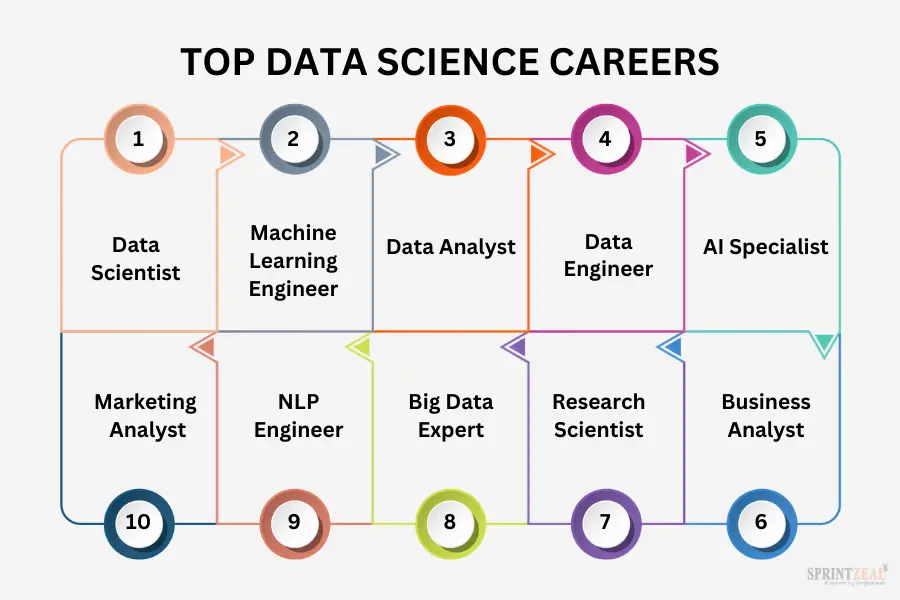
*sprintzeal.com
So, now that you’re excited about the field (and hopefully a little curious about your future), how to build a data science career, and where do you begin? This section will clear all such doubts. Let’s go!
Here’s what makes a solid foundation for a data science career and how you can start climbing from wherever you are right now:
- Start with the Basics (Even If You’re Not from Tech): Yes, you don’t need to be a coding prodigy. Start with Python or R, learn basic statistics, and get comfortable using Excel. There are tonnes of beginner-friendly courses to get your feet wet.
- Get Hands-On with Projects: Employers love portfolios. Don’t wait for your first job — build a mini project using public datasets (like Kaggle or UCI Machine Learning Repository). It could be predicting movie ratings, analyzing stock data, or even exploring your Spotify playlist trends.
- Earn Relevant Certifications or Degrees: If you’re serious about upskilling, consider a structured program, like an online Master’s in Data Science, or certifications in machine learning, AI, or data engineering. This not only boosts your resume but also gives you a clear learning path.
- Master the Art of Storytelling with Data: Learning to explain data findings in plain English is a superpower. Practice building dashboards, writing summaries, and walking through your logic.
- Network with the Community: Join LinkedIn groups, attend webinars, contribute to GitHub, and follow thought leaders. Data science is constantly evolving, and staying connected helps you grow with it.
- Intern, Freelance, or Consult: If you’re switching careers or just starting, don’t wait for the “perfect” full-time job. Try internships, part-time freelancing, or even pro bono consulting for NGOs or small businesses. Real-world exposure matters a lot.
- Stay Curious & Never Stop Learning: This might sound cliché, but it’s the golden rule. Algorithms change, tools get updated, and new fields like generative AI are popping up. A successful data science career is built on continuous learning, so keep upskilling yourself.
Data Scientist Salaries in India
So now that we’ve covered the data science careers, from upskilling and choosing the right tools to breaking into real-world roles, let’s discuss the most important question people want answered:
Is it worth it financially?
Well, the short answer is ‘yes’. The long answer? Take a quick look at what professionals in this space are earning across different data science career stages and find out for yourself.
| Job Role | Average Salary (INR per year) | Data Science Career Stage |
| Data Analyst | ₹5 – ₹8 LPA | Entry-Level |
| Junior Data Scientist | ₹6 – ₹10 LPA | Early Career |
| Data Scientist | ₹10 – ₹18 LPA | Mid-Level |
| Senior Data Scientist | ₹18 – ₹30 LPA | Experienced |
| Machine Learning Engineer | ₹12 – ₹22 LPA | Mid to Senior |
| Data Engineer | ₹10 – ₹20 LPA | Mid-Level |
| AI/ML Specialist | ₹15 – ₹28 LPA | Senior |
| Business Intelligence (BI) Analyst | ₹8 – ₹15 LPA | Early to Mid-Level |
| Data Science Manager | ₹25 – ₹45 LPA | Leadership |
| Chief Data Officer (CDO) | ₹60 LPA and above | Executive |
These salary ranges vary based on skills, location, company size, and certifications. Upskilling with the right online programme can fast-track you to the upper end of these ranges.
Turning Ambition into Action: Your Next Step in a Data Science Career
You’ve explored the roles, the salaries, and the immense potential. Now comes the question you would have probably searched nth time on Google: how do you transform this knowledge into a thriving data science career?
Well, the answer is by acquiring practical as well as industry-relevant skills that employers are actively seeking.
At Jaro Education, we understand that every learner’s journey is unique. That’s why we’ve collaborated with India’s premier institutions to offer programmes that are aligned with the expectations of data science in the future. It includes:
- Flexibility: Designed to fit into your busy schedule.
- Comprehensive Learning: Covering both foundational and advanced topics.
- Industry-Aligned Expertise: Incorporating real-world case studies and projects.
Jaro Education's Top Online Courses for Aspiring Data Scientists
Here’s a curated list of our standout programs for a future-proof data science career, you can pick from as per what suits you best:
Course Name | Institution/Partner | Duration | Mode | Key Highlights |
Professional Certificate Programme in Data Science for Business Decisions | IIM Kozhikode | 12 months | Online + Campus | Focuses on data-driven decision making, case studies, and campus immersion |
Post Graduate Certificate Programme in Applied Data Science & AI | IIT Roorkee | 6–8 months | Online + Campus | Python, R, SQL, Gen AI tools, AI applications, capstone projects |
PG Certificate in Data Science for Business Excellence & Innovation | IIM Nagpur | 12 months | 100% Online | Covers AI/ML, cloud tech, innovation-driven analytics |
Symbiosis (SSODL) | 2 years | 100% Online | UGC-approved, structured curriculum with live case studies |
Already excited to embark on your data science career journey? Visit Jaro’s website today and explore the full range of programs.
Conclusion
Building a data science career takes effort, immense effort. But this hard work pays off with unmatched opportunity, growth, and the chance to be part of shaping tomorrow.
So if you’ve been sitting on the fence and wondering, “Is data science a good career for me? But? What if?” Consider this your sign to explore more about it. The sector of data science career opportunities is vast, diverse and growing on a large scale.
Frequently Asked Questions
What does a day in the life of a data scientist look like?
A data scientist’s day begins with checking data pipelines, and it ends with sharing insights about the improvement with stakeholders. Meanwhile, they spend time cleaning that data, building models, and working with teams to solve any problem that may arise.
How do I transition from a non-technical job to a data science role?
You can start by learning basics like Python, SQL and statistics. The next step is to make a portfolio showing your core skills. Then, at the final step, which means when applying for jobs, look for entry-level data roles to get experience.
What are the most in-demand skills for data scientists in 2025?
Skills like Python, TensorFlow, and data wrangling are key, and they are not only limited to 2025 but also have equal future potential. Knowing cloud platforms (AWS, Azure) and how to share insights are also important and in demand for data scientists.
What are the top industries hiring data scientists right now?
Healthcare, finance, retail, and tech are actively hiring data scientists. These industries use data for predictions, customer insights, and improving operations.
How do I build a strong data science portfolio as a beginner?
Well, you can start with projects you’re interested in. Further, share your work on GitHub with clear explanations. Also, join challenges like Kaggle to practise and show your skills.
How do I prepare for a data science interview?
Begin by practising solving algorithms and coding problems. Explain your projects well and know the company’s specific data challenges. Here is a pro tip: Use the STAR method to structure your answers.







